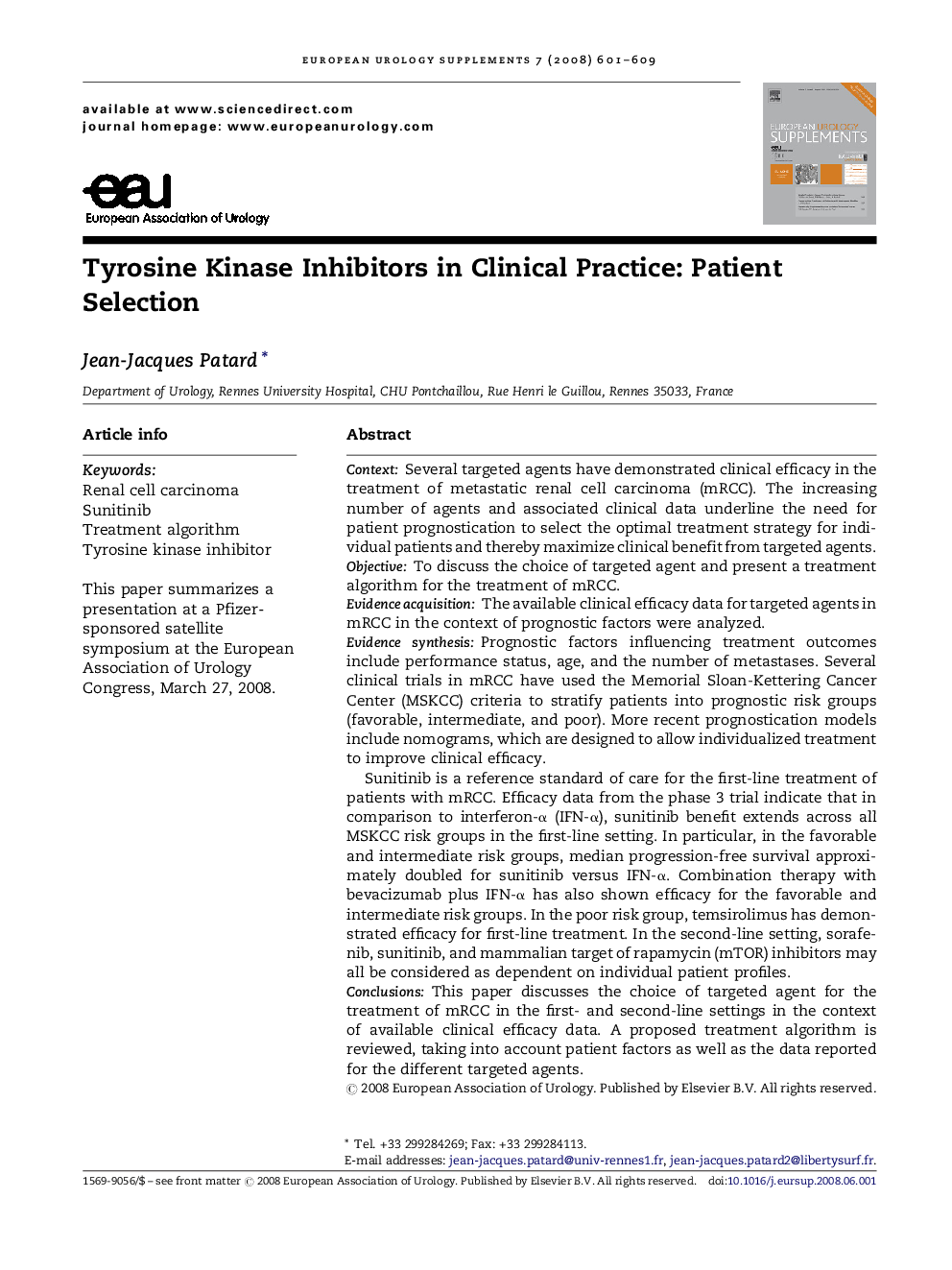| کد مقاله | کد نشریه | سال انتشار | مقاله انگلیسی | نسخه تمام متن |
|---|---|---|---|---|
| 3930908 | 1253281 | 2008 | 9 صفحه PDF | دانلود رایگان |

ContextSeveral targeted agents have demonstrated clinical efficacy in the treatment of metastatic renal cell carcinoma (mRCC). The increasing number of agents and associated clinical data underline the need for patient prognostication to select the optimal treatment strategy for individual patients and thereby maximize clinical benefit from targeted agents.ObjectiveTo discuss the choice of targeted agent and present a treatment algorithm for the treatment of mRCC.Evidence acquisitionThe available clinical efficacy data for targeted agents in mRCC in the context of prognostic factors were analyzed.Evidence synthesisPrognostic factors influencing treatment outcomes include performance status, age, and the number of metastases. Several clinical trials in mRCC have used the Memorial Sloan-Kettering Cancer Center (MSKCC) criteria to stratify patients into prognostic risk groups (favorable, intermediate, and poor). More recent prognostication models include nomograms, which are designed to allow individualized treatment to improve clinical efficacy.Sunitinib is a reference standard of care for the first-line treatment of patients with mRCC. Efficacy data from the phase 3 trial indicate that in comparison to interferon-α (IFN-α), sunitinib benefit extends across all MSKCC risk groups in the first-line setting. In particular, in the favorable and intermediate risk groups, median progression-free survival approximately doubled for sunitinib versus IFN-α. Combination therapy with bevacizumab plus IFN-α has also shown efficacy for the favorable and intermediate risk groups. In the poor risk group, temsirolimus has demonstrated efficacy for first-line treatment. In the second-line setting, sorafenib, sunitinib, and mammalian target of rapamycin (mTOR) inhibitors may all be considered as dependent on individual patient profiles.ConclusionsThis paper discusses the choice of targeted agent for the treatment of mRCC in the first- and second-line settings in the context of available clinical efficacy data. A proposed treatment algorithm is reviewed, taking into account patient factors as well as the data reported for the different targeted agents.
Journal: European Urology Supplements - Volume 7, Issue 9, September 2008, Pages 601–609